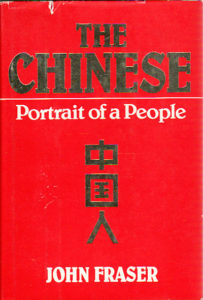The Burlington Gazette is a member of the National NewsMedia Council. This is the body in place to protect the public interest and ensure that media are fair, not always something that is easy to define.
Every quarter we get an update on what the association is doing and what other news media are up to.
We thought we would share what John Fraser, the president of the NNC, had to say.
Fraser has a rather impressive bio – he was the first North American reporter to be posted to China when he was with the Globe and Mail. He was also a former Master of Massey College. He is also a shameless punster; don’t let him get started.
April 6, 2017
BURLINGTON, ON
Opinion-mongering is one of the great bulwarks of traditional journalism. If you look at the history of newspapers, it will inevitably lead back to the glory days of London’s “Grub Street” periodicals and political broadsheets in the early 18th-century, generally favouring one party over another. Within a few decades, the business of music and theatre reviews also started up, either in their own broadsheets or attached to leading periodicals.
 There is, these days, a kind of return to these foundational roots in the rapid and happily unregulated rise of specialized digital journalism platforms. iPolitics, for example, has started asserting itself on the national consciousness as an important source of knowledge on our political and governmental life. Ditto for impressive digital-only publications like The Tyee; or some of the newest members of the NNC like Musical Toronto or Queen’s Park Today. They come about because there are readers who care about the things these platforms report and comment on and they want to stay informed. They also like the angle or perspective taken, and especially the sharp commentaries.
There is, these days, a kind of return to these foundational roots in the rapid and happily unregulated rise of specialized digital journalism platforms. iPolitics, for example, has started asserting itself on the national consciousness as an important source of knowledge on our political and governmental life. Ditto for impressive digital-only publications like The Tyee; or some of the newest members of the NNC like Musical Toronto or Queen’s Park Today. They come about because there are readers who care about the things these platforms report and comment on and they want to stay informed. They also like the angle or perspective taken, and especially the sharp commentaries.
The diffusion is equally a challenge for readers as it is for an organization like ours which strives to offer a legitimate and independent service to deal with disputes or errors or misunderstandings, whether on a digital service or the printed page. It’s the misunderstandings about opinion mongering that I want to focus on in this issue of the NNC Newsletter. Columnists and reviewers often have strong opinions and strong opinions invariably arouse reactions, one way or another.
A big part of the NNC mandate and our day to day work is to explain to complaining members of the public the traditional role of critics and reviewers, whether in the arts, the legislature, or even the dining rooms of the nation. When an outraged bistro owner feels a food critic has been unfair in Toronto Life, or an angry patron of the Canadian Opera objects to a critical evaluation of a performance, or a political party member feels there is a particular bias in a column about his or her favourite public figure or issue, our team at the NCC spends a decent amount of time explaining the role of the columnist or critic. It is part of the service, you might say.
I am a former arts reviewer and former political commentator, so believe me I know exactly how exercised readers can get about opinion mongering. I often find myself explaining what I firmly believe is the matrix of a healthy political or performing arts life in any community and it usually involves engaging the public through reviews or commentaries that are studied in their provocation. If, on the other hand, a writer makes factual errors, it is a legitimate source of complaint with which we always deal very seriously. If it’s a matter of “he says, I say”, then we try to put it in the context of acceptable community standards and practice.

John Fraser wrote an award winning book on his experience in China where he reported for the Globe and Mail.
This usually works to the complainant’s satisfaction, but sometimes it doesn’t. In one such encounter we have had recently, we listened for an age (and several times) to a complaint about an editorial in a leading newspaper. The complainant was exercised by the fact that there were conflicting facts which emerged after an editorial had been published (a day later in fact). His solution was to ask the NNC to order the newspaper to add a note to the digital version of the editorial which said, in effect, “This was researched and written before counterbalancing facts emerged.”
We tried to explain that this was something that could be put on almost any article anyone published. The logic escaped him and he is probably still complaining to anyone who will listen that both the newspaper and the NNC lack 20-20 hindsight – or is it foresight? Hindsight, in fact, we have. Foresight is for unanswerable or unresolvable complaints.
















